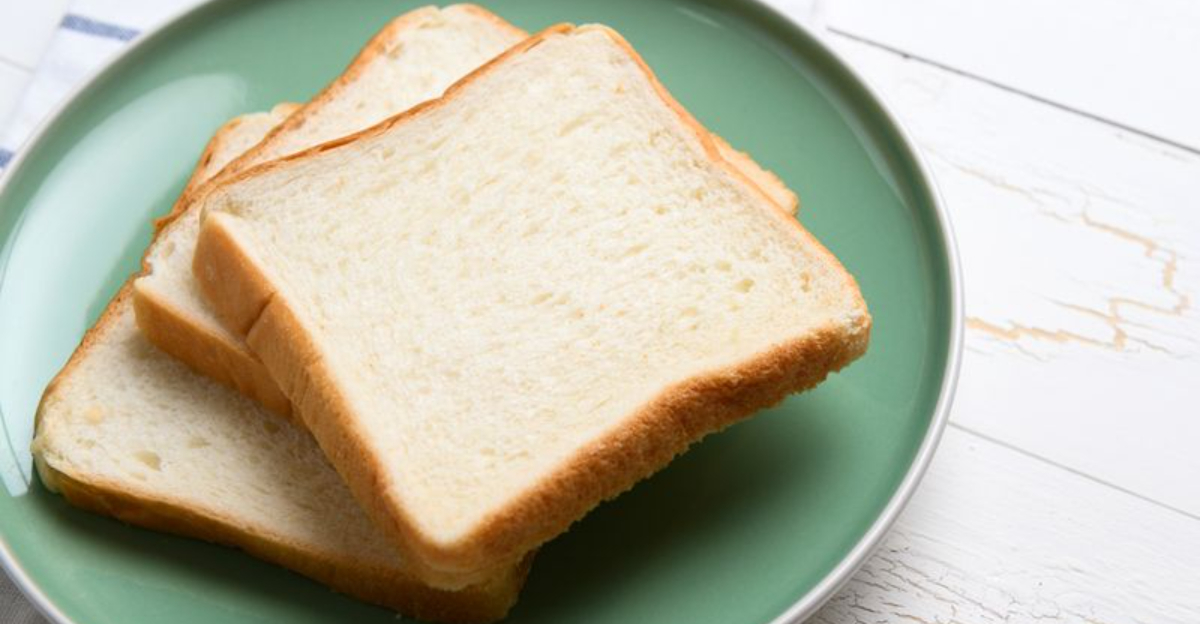18 Foods Americans Need To Stop Eating Immediately

Our daily food choices can make or break our health journey. Sadly, the American diet often includes items that silently damage our bodies over time.
However, by identifying these problematic foods and making simple swaps, we can dramatically improve our energy levels, reduce disease risk, and feel better overall.
So let’s explore 18 foods that might be sabotaging your health without you even realizing it.
1. Sugary Breakfast Cereals
The colorful boxes lining grocery aisles hide a health nightmare in disguise. Many popular cereals contain more sugar per serving than actual desserts!
I still remember my shock at discovering my favorite childhood cereal packed 16 grams of sugar per tiny cup. That’s four teaspoons of pure sugar before 8 AM.
Your body deserves better fuel to start the day – try oatmeal with fresh fruit or eggs with whole-grain toast instead.
2. Processed Lunch Meats
Behind their convenient packaging lurks a cocktail of preservatives, excessive sodium, and cancer-linked nitrates. A single sandwich can deliver half your daily sodium allowance!
These factory-created meat products barely resemble their original animal sources. The pink slices undergo extensive processing that strips away nutrients while adding questionable chemicals.
Fresh-cooked chicken, turkey, or roast beef makes a healthier sandwich filling with actual nutritional benefits.
3. Deep-Fried Fast Food
Golden and crispy on the outside, these grease bombs wreak havoc inside your body. Fast food chains often reuse oils until they become rancid, creating harmful compounds.
Back in college, I worked at a popular chicken joint where we changed the fryer oil once a week, despite serving thousands of customers daily. The smell clung to my clothes for days!
These fried disasters deliver inflammation-triggering trans fats alongside empty calories that leave you hungry again within hours.
4. Artificially Sweetened Beverages
Zero calories doesn’t mean zero problems. These chemical concoctions may actually increase cravings and hunger while disrupting gut bacteria.
Research suggests artificial sweeteners can trick your brain into wanting more sweet things. The intensely sweet taste without calories confuses your metabolic systems and may lead to weight gain paradoxically.
Water infused with fresh fruit offers natural flavor without the chemical cocktail your body wasn’t designed to process.
5. Microwave Popcorn
Movie night’s favorite snack hides a chemical secret in its convenient packaging. The bag lining contains PFAS compounds that migrate into your popcorn during heating.
My aunt, a devoted microwave popcorn fan, developed mysterious respiratory issues for years. Her symptoms improved within weeks of switching to stovetop popping!
The artificial butter flavoring contains diacetyl, linked to serious lung problems in factory workers. Plain kernels popped in a paper bag offer the same crunch without the chemical payload.
6. White Bread and Refined Flour Products
Stripped of fiber and nutrients, these bleached carbs spike blood sugar faster than eating pure table sugar. The processing removes the beneficial bran and germ, leaving only empty starch.
Your digestive system blasts through these simple carbs rapidly, triggering insulin spikes followed by energy crashes. This roller coaster effect leaves you hungry again quickly.
Whole grain alternatives retain their natural fiber and nutrients, providing steady energy and actual health benefits with each bite.
7. Processed Cheese Products
Those perfectly melting squares barely qualify as actual cheese. Legally, they must be labeled “cheese product” because they contain so many non-cheese ingredients.
The neon orange color comes from artificial dyes, while emulsifiers create that unnaturally smooth texture. During a fourth-grade science experiment, we left a slice at room temperature for weeks – it didn’t grow mold or decompose!
Real cheese contains calcium and protein. These imposters offer mostly modified oils, preservatives, and sodium.
8. Store-Bought Cookies and Baked Goods
Shelf-stable for months means packed with preservatives your body doesn’t recognize. These factory-made treats often contain partially hydrogenated oils despite “0g trans fat” labels.
FDA loopholes allow manufacturers to round down if the trans fat content is below 0.5g per serving. Eat multiple servings, and those “zeros” quickly add up.
The ingredient lists read like chemistry experiments rather than recipes. Homemade cookies with butter, flour, sugar, and eggs contain recognizable ingredients your body knows how to process.
9. Flavored Yogurts
Masquerading as health food, these desserts-in-disguise pack more sugar than ice cream! A single fruit-on-the-bottom container can contain 29 grams of sugar – that’s 7 teaspoons.
The yogurt industry brilliantly marketed these treats as nutritious options. I fell for this trick myself, eating sweetened yogurt daily while wondering why my weight loss stalled.
Plain yogurt with fresh fruit gives you probiotics and protein without the sugar overload. Add a drizzle of honey if needed – you’ll still use less than commercial versions.
10. Bottled Salad Dressings
Garden-fresh vegetables deserve better than being drenched in preservatives, emulsifiers, and hidden sugars. Many commercial dressings use soybean oil as their base, high in inflammatory omega-6 fatty acids.
The ingredient lists stretch surprisingly long for something that should be simple. Even “healthy” versions often contain thickeners, stabilizers, and flavor enhancers.
Making dressing takes seconds: olive oil, vinegar or lemon juice, and seasonings. Your salad will taste fresher, and your body will appreciate the clean ingredients.
11. Margarine and Vegetable Shortening
Butter’s impersonators were once praised as heart-healthy alternatives. Science has since revealed that these highly processed spreads may cause more harm than the natural fats they replaced.
The chemical process creating solid fats from liquid oils produces trans fats and other compounds our bodies struggle to metabolize properly. My grandmother swore by margarine until her doctor actually prescribed switching back to moderate amounts of real butter!
Olive oil, avocado oil, or small amounts of real butter provide fats your body recognizes without industrial processing.
12. Energy Drinks
The turbocharged caffeine bombs wreak havoc on your heart, sleep, and nervous system. A single can can contain the caffeine equivalent of 5 cups of coffee, alongside mysterious “energy blends.”
The sugar content rivals soda, while artificial colors and preservatives add another layer of chemical exposure. Regular consumption has been linked to heart rhythm disturbances and anxiety.
Green tea offers natural energy without the crash, or try water with a splash of fruit juice for hydration that won’t stress your system.
13. Frozen TV Dinners
Convenience comes at a steep nutritional price with these sodium-packed meals. A single dinner often exceeds 1,000mg of sodium – nearly half your daily limit!
During my busy law school years, I lived on these microwavable meals. My blood pressure crept up mysteriously until my doctor pointed to my freezer-focused diet as the likely culprit.
Even “healthy” versions use preservatives and texture enhancers while skimping on vegetables. Batch cooking real food on weekends provides convenience without the chemical load.
14. Fruit Juices and Smoothies
Liquid fruit sounds healthy, but misses crucial fiber while concentrating sugars. A glass of apple juice contains the sugar of 3-4 apples without the fiber that would normally slow sugar absorption.
Commercial versions often add extra sweeteners while using heat-pasteurization that destroys many vitamins. The result is essentially flavored sugar water with minimal nutritional value.
Eating whole fruit provides natural sugar packages with fiber that helps regulate blood sugar response and keeps you satisfied longer.
15. Flavored Coffee Drinks
Morning coffee becomes dessert when pumped full of flavored syrups, whipped cream, and drizzles. A large flavored latte can pack 500+ calories and 60+ grams of sugar – more than many candy bars!
The coffee itself offers antioxidants, but they’re drowned in a sea of sweeteners. As a former barista, I watched customers unknowingly drink their entire day’s sugar allowance before 9 AM.
Black coffee or coffee with a splash of milk provides caffeine without turning your cup into a calorie bomb.
16. Canned Soups
Sodium levels in these pantry staples would shock most consumers. A single cup can contain 900mg of sodium – that’s like eating two bags of potato chips!
The BPA lining in many cans presents additional health concerns, potentially leaching into acidic foods like tomato-based soups. Even “reduced-sodium” versions still contain significant salt levels compared to homemade alternatives.
Making simple soups in batches and freezing portions provides the same convenience with controlled ingredients and authentic flavor.
17. Reduced-Fat Peanut Butter
Fat reduction sounds healthy until you check what replaces it – usually sugar and fillers. Regular peanut butter contains healthy monounsaturated fats that actually benefit heart health.
The “reduced-fat” marketing trick fools consumers into choosing a nutritionally inferior product. During my nutrition certification studies, this product was highlighted as a classic example of misleading health claims.
Natural peanut butter containing only peanuts and maybe salt provides protein and healthy fats that keep you satisfied longer than the sugar-enhanced versions.
18. Agave Nectar
Health food stores promote this “natural sweetener” despite its high fructose content that rivals high-fructose corn syrup. The extensive processing required hardly qualifies it as natural.
Fructose must be processed by your liver, which converts excess amounts to fat more readily than other sugars. The concentrated fructose content can actually be harder on your body than regular sugar.
Small amounts of honey or maple syrup provide sweetness with additional minerals and antioxidants that highly refined agave lacks.
